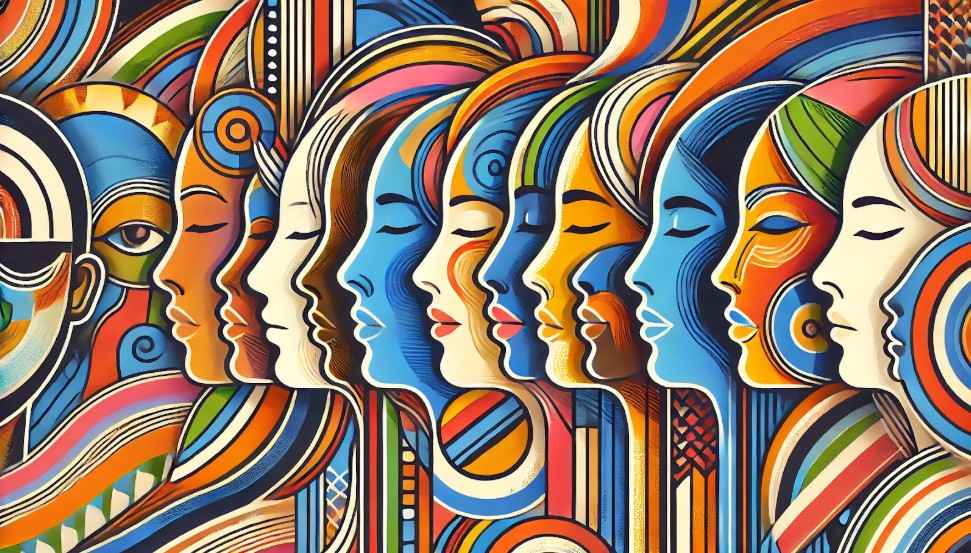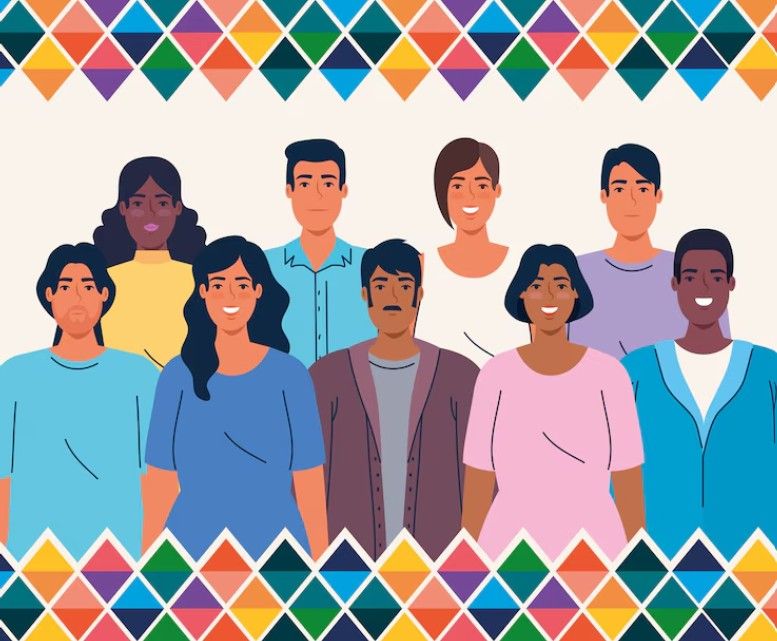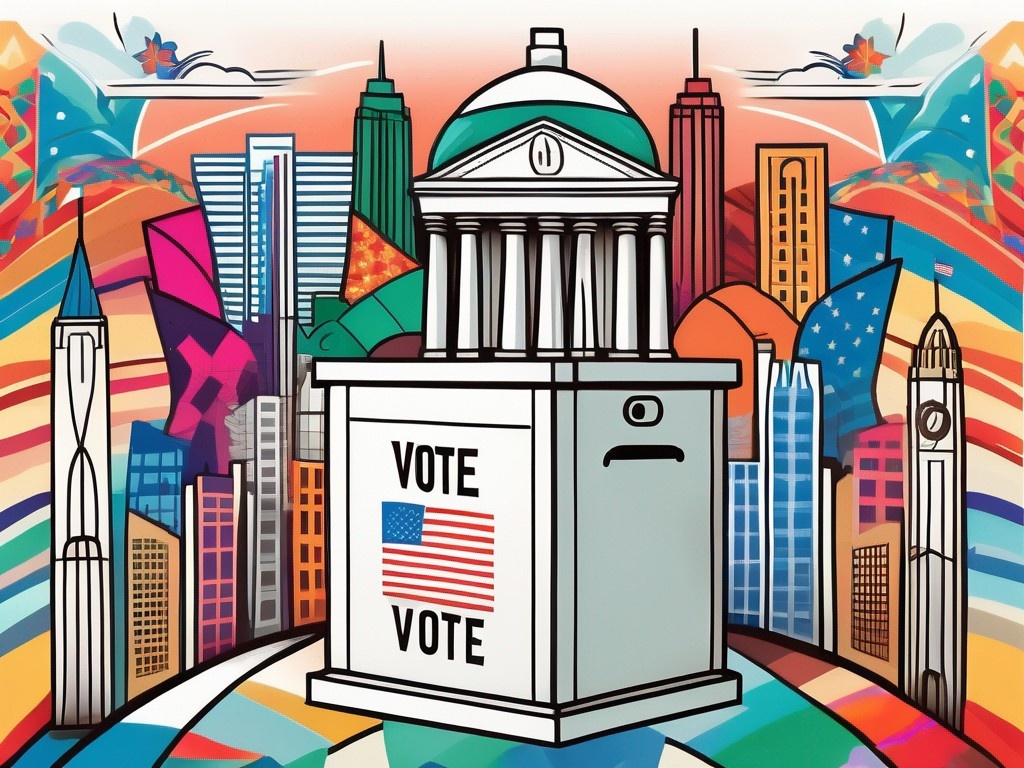In an increasingly interconnected world, the significance of diversity and representation in politics cannot be overstated. As societies grow more complex, the diversity of the populace must be mirrored in political arenas to ensure comprehensive, equitable governance. This article will explore the meanings of diversity and representation, their impacts on policymaking, the current state of affairs, challenges to achieving these ideals, and the future prospects for diversity in politics.
Understanding the Concepts: Diversity and Representation
Defining Diversity in Politics
Diversity in politics refers to the inclusion of individuals from different backgrounds, encompassing race, gender, sexual orientation, age, religion, and socioeconomic status. The essence of diversity lies in its ability to bring a multitude of perspectives to the forefront of political discourse, reflecting the multi-faceted nature of society itself. A politically diverse environment ensures that the voices of various communities are heard and represented, thus enhancing the quality of democratic deliberation.

In practical terms, diversity in political bodies means having leaders who can authentically convey the experiences and concerns of marginalized groups. This not only fosters a sense of belonging within society but also encourages engagement from demographic groups that have traditionally been excluded from the political process. Furthermore, diverse political representation can lead to more innovative solutions to societal issues, as varied experiences and viewpoints contribute to more comprehensive policy-making. For instance, when women and people of color are included in legislative discussions, they can advocate for policies that address specific challenges faced by their communities, such as reproductive rights or racial equity in law enforcement.
The Meaning and Importance of Representation
Representation involves ensuring that the interests, views, and needs of various constituencies are effectively voiced in political decision-making. It goes hand in hand with diversity, as it is through diverse representation that legislation and policies can be tailored to serve the entire population rather than just a select few.
The importance of representation is evident; when individuals see themselves in positions of power—whether through elected officials or appointed leaders—they are more likely to trust and engage with political processes. This trust fosters civic participation, an essential element of a healthy democracy. Moreover, representation plays a crucial role in shaping public policy. When diverse groups are represented, the likelihood of addressing systemic inequalities increases, as these leaders are more attuned to the unique challenges faced by their constituents. For example, having representatives from low-income communities can lead to the prioritization of affordable housing initiatives or access to quality education, ensuring that the needs of all citizens are met and that no group is left behind in the political landscape.
The Impact of Diversity and Representation on Policy Making
The Role of Diverse Perspectives in Legislation
Diverse perspectives lead to more comprehensive policy outcomes. When legislators come from a variety of backgrounds, they bring unique experiences, insights, and challenges that the standard political narrative may overlook. This breadth of perspective can lead to more effective and inclusive policies that address the needs of a broader spectrum of the population.

For example, legislation concerning health care, education, or public safety can greatly benefit from input by representatives who have firsthand experiences with these issues. By embedding a diversity of ideas in the legislative process, policies become more tailored and effective, ultimately serving their intended communities better. Furthermore, diverse legislative bodies are often more adept at identifying gaps in existing policies, leading to innovative solutions that might not have been considered in a more homogenous group. This innovation can be particularly crucial in rapidly evolving fields such as technology and environmental policy, where fresh perspectives can drive forward-thinking legislation that anticipates future challenges.
How Representation Influences Policy Outcomes
Representation directly influences the priorities and outcomes of policy decisions. When decision-makers reflect the demographic makeup of their constituents, they are more likely to advocate for issues that resonate with the populace. On the contrary, a lack of representation can lead to policies that are misaligned with the needs of certain demographic groups, perpetuating inequalities and disenfranchisement.
This relationship underscores the importance of electing representatives who genuinely reflect the diversity of the population they serve. Ensuring equitable representation acts as a check against the interests of dominant groups overshadowing other voices in the policymaking process. Additionally, when marginalized communities see themselves represented in government, it fosters a sense of trust and engagement in the political process. This engagement can lead to increased voter turnout and civic participation, further amplifying the voices of those who have historically been sidelined. As a result, the cycle of representation and advocacy can create a more vibrant democracy, where policies are not only reflective of the population but also actively promote social justice and equity across all sectors of society.
The Current State of Diversity and Representation in Politics
Evaluating Diversity in Today’s Political Landscape
Despite strides in recent years, the current political landscape still exhibits significant gaps in diversity. Many governing bodies remain predominantly composed of individuals from homogenous backgrounds, particularly in leadership roles. Issues related to race and gender equity are prominent, with women and minorities often underrepresented.
Organizations such as the Center for American Progress have conducted extensive research illustrating these disparities. Their findings indicate that while progress has been made in some areas, such as the representation of women, many racial and ethnic groups still lag behind in terms of political representation. For instance, while the number of women in Congress has reached historic highs, women of color still face substantial barriers to entry, often encountering systemic obstacles that hinder their political ambitions. This underrepresentation not only affects policy outcomes but also perpetuates a cycle where the voices and experiences of diverse communities are marginalized in the decision-making process.
Assessing Representation in Modern Politics
Modern politics has seen an increasing awareness of the need for representation, yet actual progress remains slow. Grassroots movements have emerged, advocating for systemic change to create a more equitable political environment. However, the representation of specific demographics, especially in positions of influence, is a focal point that requires ongoing attention. Initiatives like the “Run for Something” campaign have been instrumental in encouraging young and diverse candidates to seek office, aiming to reshape the political landscape from the ground up. These efforts highlight the importance of mentorship and support networks that can empower underrepresented individuals to navigate the complexities of political candidacy.
Ultimately, establishing a truly representative political system necessitates not only awareness but also actionable change within political institutions, as well as societal attitudes toward diversity and inclusion. This includes re-evaluating electoral processes, such as gerrymandering and voter suppression tactics, which disproportionately affect marginalized communities. Moreover, fostering an inclusive political culture that values diverse perspectives can lead to more comprehensive and effective governance, as varied experiences contribute to richer discussions and more innovative solutions to the challenges facing society today.
The Challenges and Solutions to Achieving Diversity and Representation
Identifying Barriers to Diversity and Representation
Multiple barriers hinder the advancement of diversity in politics. Systemic factors include entrenched socio-economic inequalities that limit access to political resources and opportunities.

Moreover, party structures often favor established candidates, creating a cycle that perpetuates a lack of diversity. These challenges must be understood and addressed to create pathways for underrepresented individuals to engage in politics.
Strategies for Enhancing Diversity and Representation in Politics
Implementing strategies aimed at enhancing diversity requires multifaceted approaches. Political parties can start by embracing inclusive recruitment practices that actively seek out diverse candidates. Initiatives such as mentorship programs can provide essential support for aspiring politicians from underrepresented backgrounds.
- Offering training programs for potential candidates to equip them with the necessary skills.
- Implementing policies that promote workplace diversity in political offices.
- Encouraging coalition-building among minority groups to amplify their political influence.
Moreover, public awareness campaigns highlighting the importance of diversity in politics can foster a more supportive environment for diverse candidates. By collectively working toward these solutions, societies can gradually dismantle the barriers that currently impede progress.
The Future of Diversity and Representation in Politics
Predicting Trends in Political Diversity
As societal norms shift and the demand for representation continues to grow, it is likely that future political landscapes will be more inclusive. Younger generations, which place a high value on diversity, are increasingly becoming involved in politics, often pushing for progressive change. This generational shift heralds a promising trend towards greater political inclusivity.
Innovation in political campaigning, driven by technology and social media, also democratizes the process of how candidates can reach voters, thus broadening the field of potential representatives.
The Evolving Nature of Representation in Politics
The concept of representation is dynamic and is continually being redefined. With growing awareness of intersectionality, there is a greater understanding that representation cannot be oversimplified. Instead, political bodies must reflect the complexity of societal identities and challenges.
As civic engagement continues to rise and the demand for accountability increases, political systems will likely adapt to prioritize diversity in their structures and operations. Fostering inclusive politics not only fulfills a moral obligation but also enhances the quality of governance and enriches societies as a whole.
In conclusion, promoting diversity and representation within political spheres is vital for achieving equitable and effective governance. It enriches decision-making processes and ultimately leads to a more just society. As we progress into the future, the commitment to these principles is essential, guiding political transformation and fostering an environment where every voice is heard and valued.















